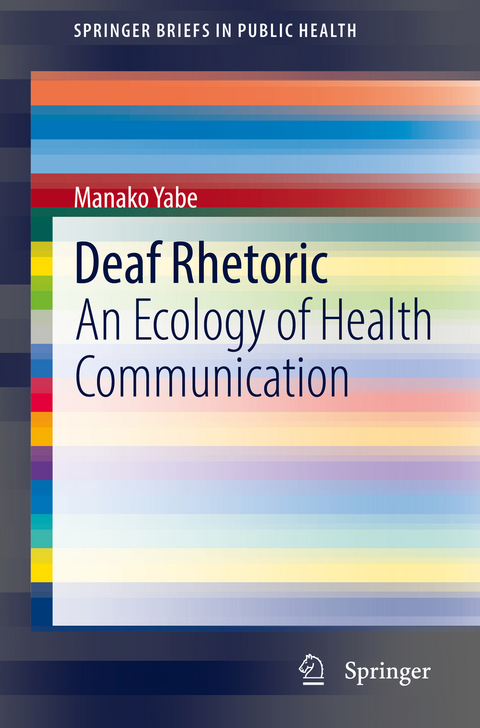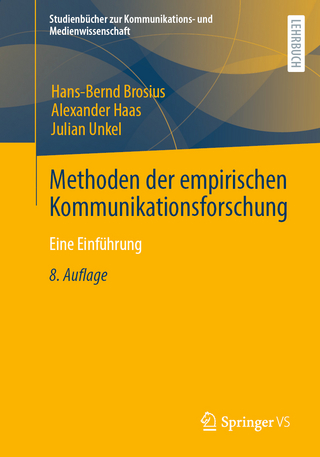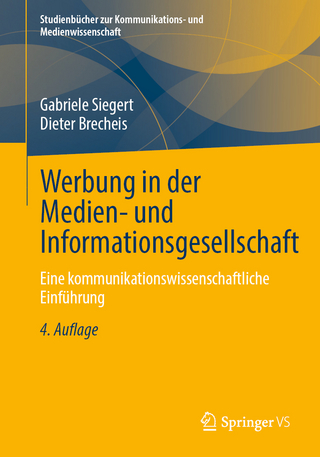
Deaf Rhetoric
Springer International Publishing (Verlag)
978-3-030-96244-9 (ISBN)
The book addresses an understudied aspect of access and is written by an international deaf researcher from Japan who uses American Sign Language(ASL) and English as non-native languages. In order to identify appropriate interpreting services for specific treatments, the author focuses on healthcare professionals' and D/HH patients' interpreting preferences for critical and non-critical care in the US, and offers a new theoretical framework, an Ecology of Health Communication, to contextualize and analyze these preferences. The ecological matrix and its five analytical dimensions (i.e., physical-material, psychological, social, spatial, and temporal) allow readers to understand how these dimensions influence healthcare professionals' and D/HH patients' interpreting preferences as well as the treatment outcomes. This book concludes by prioritizing the use of an appropriate interpreter for specific treatments and allocating funds for in-person interpreters for critical care treatments.
Deaf Rhetoric: An Ecology of Health Communication is primarily designed for healthcare professional students and professionals, hospital administrators, medical interpreters, VRI companies, and healthcare researchers. Scholars interested in the communication preferences of healthcare professionals and deaf people also will find this text useful. The book counters some of the power differences between healthcare providers and those who use medical services, and subtly reminds others that deaf people are not solely the receivers of medical care but actually are full people. The field of health care is growing and medical schools are increasingly called on to address cultural competencies; this resource provides a needed intervention.
lt;b>Manako Yabe, PhD, MSW is the first Deaf faculty member in the Division of Disability Sciences at the University of Tsukuba, Japan. Dr. Yabe was born deaf in Japan and grew up in three countries: Japan, the United Kingdom, and the United States. She earned a Bachelor of Arts in Deaf Studies from California State University, Northridge, a Master's in Social Work from the University of Southern California, and a Doctor of Philosophy in Disability Studies from the University of Illinois, Chicago. Her areas of specialization include: Technical Communication, Deaf Studies, Disability Studies, Disability Rhetoric, Writing Center Studies, and Mixed Methods Research.
Chapter 1: Deaf People and Health Communication.- Chapter 2: What Is an Ecology of Health Communication?.- Chapter 3: Deaf and Hard of Hearing Patients' Perspectives.- Chapter 4: Healthcare Professionals' Perspectives.- Chapter 5: Conclusion and Implications.- Index.
| Erscheinungsdatum | 10.03.2022 |
|---|---|
| Reihe/Serie | SpringerBriefs in Public Health |
| Zusatzinfo | XXV, 55 p. 3 illus., 1 illus. in color. |
| Verlagsort | Cham |
| Sprache | englisch |
| Maße | 155 x 235 mm |
| Gewicht | 141 g |
| Themenwelt | Medizin / Pharmazie ► Gesundheitsfachberufe |
| Medizin / Pharmazie ► Pflege | |
| Sozialwissenschaften ► Kommunikation / Medien ► Kommunikationswissenschaft | |
| Sozialwissenschaften ► Kommunikation / Medien ► Medienwissenschaft | |
| Wirtschaft ► Betriebswirtschaft / Management | |
| Schlagworte | Deaf Patients • Deaf Studies • disabilities and accommodation • ecology of health communication • healthcare communications • healthcare professionals • health services research • hearing loss • hospital administration • in-person interpreting • medical interpreters • Mixed Methods Research • patient-provider communication • Sign Language • Storytelling • Video Remote Interpreting |
| ISBN-10 | 3-030-96244-X / 303096244X |
| ISBN-13 | 978-3-030-96244-9 / 9783030962449 |
| Zustand | Neuware |
| Informationen gemäß Produktsicherheitsverordnung (GPSR) | |
| Haben Sie eine Frage zum Produkt? |
aus dem Bereich


